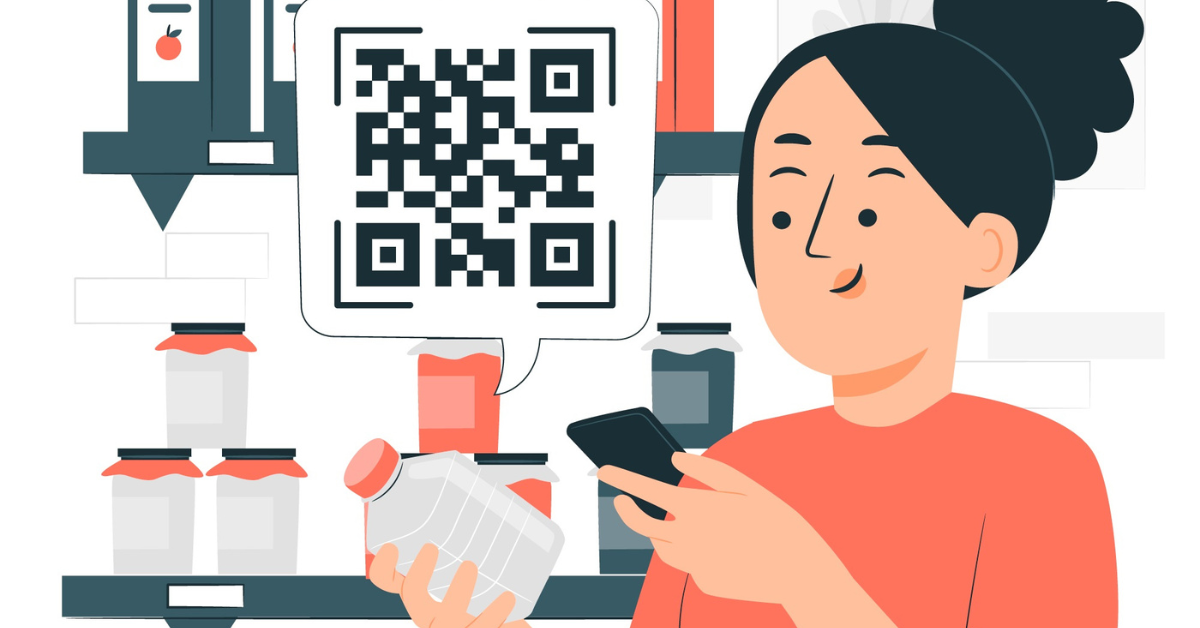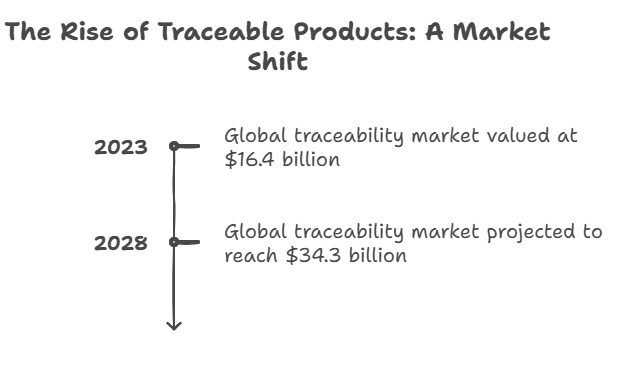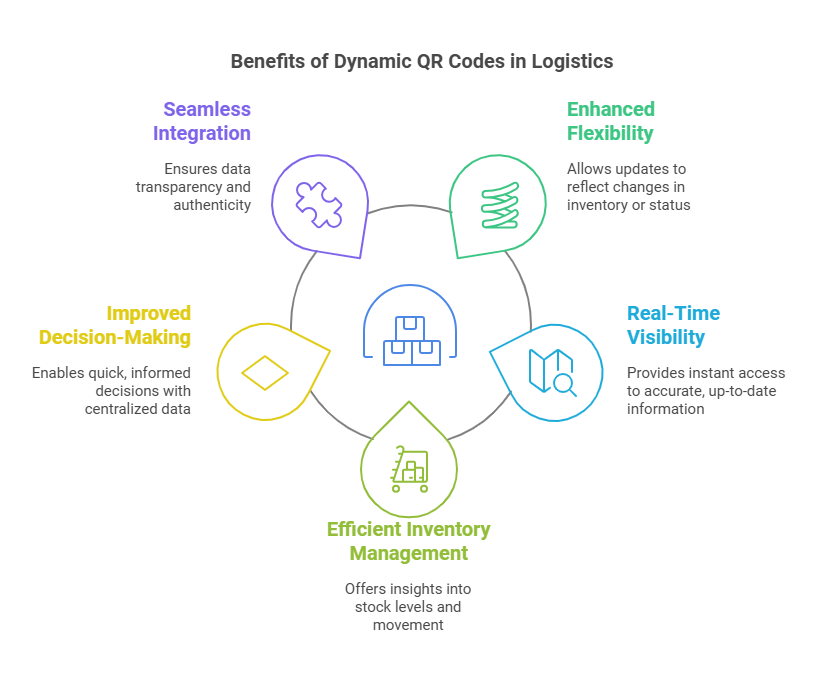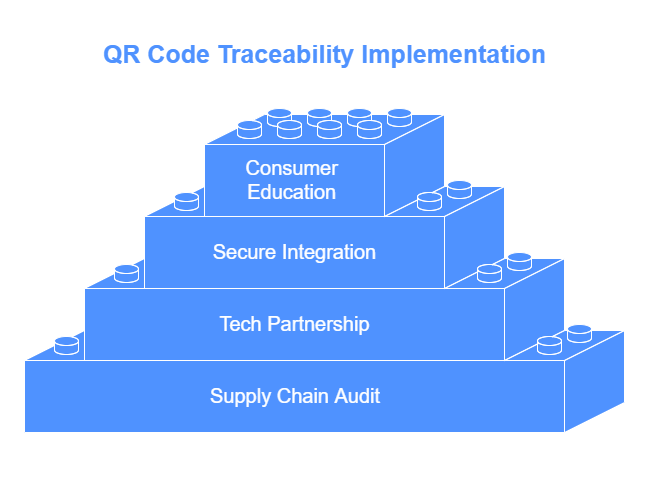Contact: +91 99725 24322 |
Menu
Menu
Quick summary: Discover how QR code traceability enhances consumer trust and supply chain transparency. Learn its benefits for businesses and how it drives loyalty and sustainability.

Today consumers demand transparency, but most supply chains fail to deliver it. A lack of clear, reliable information creates distrust, leaving shoppers skeptical about claims like “organic,” “sustainable,” or “fair trade.”. QR code traceability is a game-changing solution that bridges the gap between brands and consumers.
With a simple scan, QR codes provide instant access to a product’s origin, certifications, and ethical practices, empowering shoppers to make informed decisions. For businesses, it’s more than just a tool—it’s a way to build trust, boost transparency, and stay ahead in a competitive marketplace. Let’s explore how QR code traceability is transforming supply chains and reshaping consumer trust.
Key Takeaways
Imagine being able to trace the journey of a product from its origin to your hands with just a quick scan of a QR code. That’s the power of QR code traceability—a digital tool that’s making supply chains more transparent and trustworthy than ever before.
So, what exactly is QR code traceability? At its core, it’s the use of QR codes to store and share detailed information about a product’s lifecycle. From the raw materials used in production to the factories where it’s made, every step of the supply chain can be captured, encoded, and easily accessed by scanning the QR code.
Here’s a simple breakdown:
It’s like giving every product its own unique digital passport that’s accessible anytime, anywhere.
By making information accessible and actionable, QR code traceability isn’t just a tech trend—it’s a movement toward a more honest and transparent world. Whether it’s the food you eat or the clothes you wear, QR codes are ensuring that consumers are better informed and businesses are more accountable.
When it comes to choosing products, today’s consumers want more than just quality—they want transparency, authenticity, and a commitment to sustainability. This is where QR code traceability steps in as a game-changer, empowering businesses to earn trust while giving consumers the confidence they need to make informed decisions.
Ever wondered where your morning coffee came from or how the sneakers you’re wearing were made? With QR code traceability, those answers are just a scan away. A quick tap on your smartphone gives you instant access to a product’s full journey—from its origin to the final production steps.
For example, you can scan a QR code on a chocolate bar and find out if the cocoa was ethically sourced, or check if a piece of furniture was made with sustainable wood. It’s like lifting the curtain on supply chains, giving consumers the transparency they crave.
Counterfeit products are a massive problem across industries, whether it’s luxury handbags or even seeds. QR codes tackle this issue head-on by verifying a product’s authenticity.
When a brand links detailed, tamper-proof information to a unique QR code, it becomes nearly impossible for counterfeiters to fake. By scanning the code, consumers can confirm that the product is genuine and traceable to its original source. This creates a sense of security and builds trust in the brand.
TraceX implemented its blockchain-based seed traceability solution for a state government in India, transforming the agricultural sector. By ensuring transparency and accountability across the seed supply chain, the solution helped combat the issue of spurious seeds. It enabled farmers to access authentic, high-quality seeds, leading to better crop yields and promoting sustainable agricultural practices. This initiative not only improved farming outcomes but also built trust within the agricultural ecosystem.
As sustainability becomes a top priority, people want to know if the products they buy align with their values. QR code traceability lets consumers verify eco-friendly practices, like whether a product was made using ethical labor, carbon-neutral shipping, or regenerative farming techniques.
Imagine buying a T-shirt and scanning its QR code to learn that it was made with organic cotton, dyed with eco-friendly processes, and sewn by workers earning fair wages. These details not only showcase a brand’s commitment to sustainability but also give consumers the assurance that their purchase contributes to a better world.
QR code traceability goes beyond being a tech tool; it’s a bridge between brands and consumers. By offering transparency, ensuring authenticity, and promoting sustainability, QR codes build trust one scan at a time. For consumers, it’s about making choices that align with their values. For businesses, it’s about standing out in a competitive market with a commitment to honesty and accountability.
When you’re transparent about your products’ origins and practices, customers notice—and they stick around.
Studies show that 94% of consumers are likely to be loyal to a brand that offers full transparency.
By providing customers with a QR code that tells the story of their product—where it was made, how it was sourced, and the certifications it holds—you create a personal connection and build trust.
For example, a coffee brand that shares details about its ethical sourcing through QR codes not only attracts conscious consumers but also turns them into repeat buyers. It’s simple: when customers feel informed and valued, they keep coming back.
Regulations like the EU Deforestation Regulation (EUDR) and the Food Safety Modernization Act (FSMA) require companies to prove the ethical and legal sourcing of their products. QR code traceability simplifies this process by digitizing and centralizing compliance data.
Instead of scrambling through paperwork, businesses can store certifications, production records, and sourcing details directly in the QR code’s linked database. This makes audits and inspections faster and more efficient—saving time and reducing stress.
QR codes don’t just make things easier for customers—they also transform supply chain management. By embedding data into a QR code, businesses can improve communication across suppliers, manufacturers, and distributors.
For instance, a food company can track a product’s journey in real-time, ensuring quality and addressing issues like delays or contamination early.
A 2023 market report showed that businesses with end-to-end traceability systems reported a 30% reduction in operational errors, thanks to better data sharing and visibility.

Businesses that leverage QR code traceability aren’t just meeting customer expectations—they’re staying ahead of industry trends.
The TraceX Food Traceability Platform is designed to empower businesses across the food and agriculture supply chain by offering end-to-end visibility and trust-building solutions. Among its many innovative features, Customized QR Codes and Dynamic QR Codes stand out as game-changers for enhancing transparency, improving consumer engagement, and ensuring regulatory compliance.
With TraceX, businesses can create customized QR codes that align with their unique branding and storytelling needs. These QR codes aren’t just functional—they become a powerful communication tool for building consumer trust.
The Araku Valley, located in the northeastern part of Andhra Pradesh near Odisha, has emerged as a trendy coffee-producing area. The modest plantations, predominantly managed by tribal farmers in the low hills of the Eastern Ghats, have largely avoided the chemical farming techniques prevalent in Karnataka’s Kodagu and Chikkamagaluru coffee regions.
Dynamic QR codes offered by TraceX take traceability to the next level by providing real-time, editable content without the need to reprint codes.

In today’s digital age, QR codes have evolved into more than just links—they’re bridges between businesses and consumers. The TraceX platform integrates customized and dynamic QR codes to:

How Go Desi Transformed Consumer Engagement with QR Code-Based Traceability
Go Desi, a popular brand for regional snacks, enhanced consumer trust and engagement by leveraging TraceX’s QR code-based traceability platform. Each Imli Popz product now features a QR code that allows consumers to trace its journey from sourcing to packaging.
Transparent Bean-to-Cup Journey of SLAY Coffee with TraceX Solutions
SLAY Coffee partnered with TraceX to implement a blockchain-enabled traceability system for its coffee supply chain. By scanning the QR codes on their coffee cups, SLAY’s consumers can access a transparent journey of the coffee bean—from its origin at certified farms to its final brew.
Svojas’s Millet Food Traceability with TraceX Solutions
Svojas, a brand focused on sustainable millet-based food products, partnered with TraceX to create farm-to-fork transparency for its millet products. QR codes on the packaging reveal a detailed story of the millet—from cultivation by smallholder farmers to processing and packaging.
In an era of conscious consumerism, QR code traceability is no longer optional—it’s essential. By providing transparency, verifying authenticity, and promoting sustainability, QR codes empower brands to build trust, enhance loyalty, and stay ahead in a competitive marketplace. As businesses embrace this technology, they pave the way for a future where every product tells a story and every consumer feels confident in their choices.
QR code traceability links a product’s journey through the supply chain to a scannable code. By scanning the code, consumers can access information about the product’s origin, processing methods, and certifications, ensuring transparency and trust.
Industries like food and beverage, fashion, pharmaceuticals, and agriculture benefit greatly. These sectors rely on traceability to address consumer demand for transparency, combat counterfeiting, and meet regulatory requirements.
Yes, QR code traceability enables businesses to showcase their sustainability efforts, such as ethical sourcing, carbon neutrality, or eco-friendly practices, allowing consumers to make informed and responsible choices.
